
AI breakthrough could help us build solar panels out of ‘miracle material’, scientists say
Artificial intelligence is helping engineers build solar panels out of a “miracle material”. Scientists have long been excited about the possibility of new perovskite tandem solar cells, which could help bring the vastly improved efficiency of perovskite to mass production. They have an efficiency of more than 33 per cent, dramatically higher than conventional silicon solar cells. Those tandem solar cells come with a host of other benefits, too. They rely on inexpensive raw materials and can be made relatively easily. Engineers have faced a problem, however, in making them cheaply and at scale. To make them efficient, manufacturers need to make a very thin, high-grade layer of perovskite. Doing that is difficult. It relies on a complex process that varies significantly, seemingly with little explanation. Trying to improve that process has often relied on a gradual process of trying out new possibilities through trial and error. Now scientists have successfully built a new system that uses artificial intelligence to try and work out how to build those layers better. Instead of picking through video recordings to work out how different layers work, researchers were able to train a computer system to spot the hidden signs of good and bad coatings. After the system was built, it was able to be used better understand how to change the production to make it more efficient, researchers said. “These are extremely exciting results,” said Ulrich W Paetzold, a researcher from the Karlsruhe Institute of Technology, who worked on the new study. “Thanks to the combined use of AI, we have a solid clue and know which parameters need to be changed in the first place to improve production. “Now we are able to conduct our experiments in a more targeted way and are no longer forced to look blindfolded for the needle in a haystack. This is a blueprint for follow-up research that also applies to many other aspects of energy research and materials science.” An article describing the breakthrough, ‘Discovering Process Dynamics for Scalable Perovskite Solar Cell Manufacturing with Explainable AI’, is published in Advanced Materials. Read More Tiny solar-powered van unveiled in Japan Solar panel world record smashed with ‘miracle material’ ‘We let you down’: Peloton apologises for Thanksgiving ride
2023-11-25 01:16
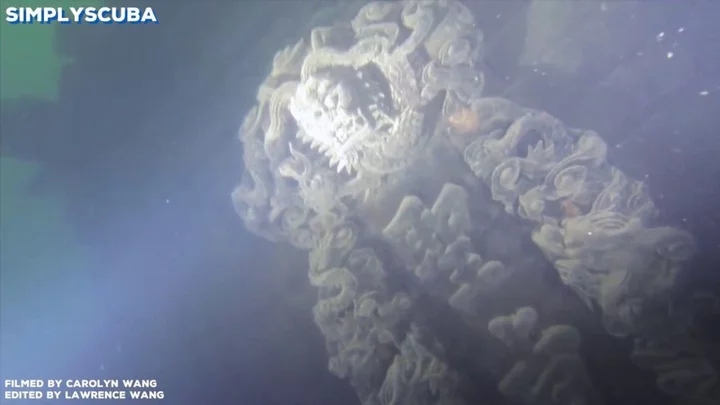
Ancient Chinese city found perfectly preserved at the bottom of a lake
Submerged beneath a manmade lake in China lies a forgotten city, dubbed by experts as “China’s Atlantis”. The underwater city, known as the Lion City or Shi Cheng, is hidden 40 metres beneath the surface of Qiandao Lake in eastern China. In 2001, officials discovered – or rediscovered – that the metropolis had been perfectly preserved after years underwater, and by 2017 had opened it up as a diving site for tourists. But what is the history of the Lion City, and how did it end up underwater? Shi Cheng is thought to have been built during the Eastern Han Dynasty between 25AD and 200AD. It was once a political and economic hub in the eastern province of Zhejiang, with a regional seat of power located in the city. The city walls, believed to date back to the 16th century, had five entrance gates, as opposed to the traditional four in old Chinese cities, and its wide streets contain 265 archways featuring stonework of dragons, phoenixes and (you guessed it) lions. However, in 1959, the Chinese government decided to build a hydroelectric power plant in the area and, somewhat shockingly, decided to flood the city to do it. This didn’t just amount to getting rid of a historical artefact. More than 300,000 people needed to be rehoused for the project, which ultimately birthed Qiandao Lake. A surprising side effect to this was that the city remains as a time capsule to the period when it was flooded. Since the water used to submerge it did not contain anything corrosive, and was not conducive to marine life, the remains are in perfect condition. And even though it was still functioning as a city until the mid-20th century, the Lion City has still not been completely mapped out. Now, divers are slowly working through each building, structure, archway, road and house to eventually put together a full picture of what it would have looked like. Until then, it will remain at least party shrouded in mystery, as China’s very own Atlantis. How to join the indy100's free WhatsApp channel Sign up to our free indy100 weekly newsletter Have your say in our news democracy. Click the upvote icon at the top of the page to help raise this article through the indy100 rankings.
2023-11-24 23:51
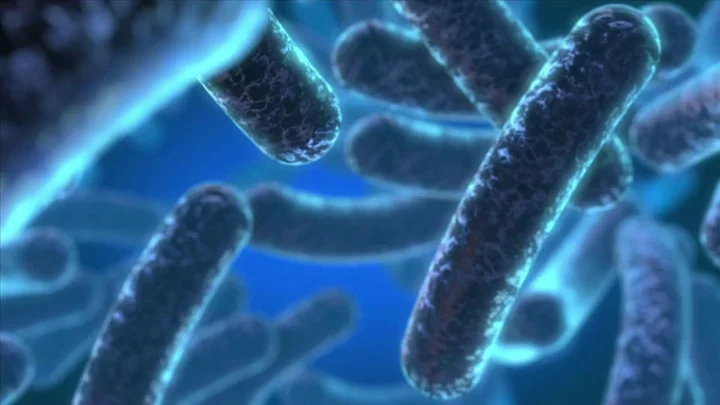
Scientists discover that bacteria has 'memories' that pass on to future generations
Scientists have made an astonishing discovery that suggests bacteria contain memories to be passed on to future generations. Researchers at the University of Texas and the University of Delaware found that despite having no brain or nervous system, certain bacteria may be able to form memories and remember certain behaviours depending on the available cellular iron. When iron levels are low, bacteria can hunt for local iron in their environment, prompting scientists to believe its memory has evolved, according to Science Alert. "Bacteria don’t have brains, but they can gather information from their environment, and if they have encountered that environment frequently, they can store that information and quickly access it later for their benefit," Souvik Bhattacharyya, the lead author of the recent study said. "We show [...] that a prior experience of swarming is remembered when Escherichia coli encounters a new surface, improving its future swarming efficiency," Souvik explained. "An iron-based memory might offer the advantage of providing a hub connecting various stress responses such as antibiotic survival and biofilms." The 'memories' lasted for around four generations, before generally coming to an end by the seventh. "Before there was oxygen in the Earth’s atmosphere, early cellular life was utilizing iron for a lot of cellular processes. Iron is not only critical in the origin of life on Earth, but also in the evolution of life,” the study author went on to explain. "It makes sense that cells would utilize it in this way." How to join the indy100's free WhatsApp channel Sign up for our free Indy100 weekly newsletter Have your say in our news democracy. Click the upvote icon at the top of the page to help raise this article through the indy100 rankings.
2023-11-24 22:21

Science has determined what the optimum length of time we should spend in a bath
There's nothing better than a hot bath to warm up and unwind on a chilly winter evening - but water bills don’t come cheap, so it’s more important than ever to make sure you’re making the most of your time in the tub. So how long should we be spending in the bath? Well, a recent study has uncovered that 22 minutes is the optimum length of time to spend in the bath. The study conducted by Victorian Plumbing sought to discover ULTIMATE bath time for relaxation, hydration and a good night’s sleep. There were 20 participants involved in the experiment - half male and half female - who took baths of varying lengths and rated how they felt afterward based on a number of factors. The study concluded that 22 minutes is the optimum amount of time to spend in the tub - to feel relaxed, hydrated, and sleep well after. Soaking should stop at 27 minutes if you don’t want to stay feeling hydrated post-bath, according to the study. This supports the advice of some professionals, who suggest that baths should be no longer than 30 minutes. It was also uncovered that baths impact men and women slightly differently. Women have a better night’s sleep after a longer bath, ideally, 30 minutes long, whereas men sleep better after 19 minutes. Those who felt more relaxed after the baths had scrolled on their phone during their time in the tub, whereas those who watched TV were found to be the least. Sorry to burst your bubble bath lovers, but the findings also suggest that people who take more baths are generally more stressed - although they find them more relaxing than shower- on the whole. “When the nights start getting colder in the UK, we tend to see an increase in Brits looking to buy a bath. And who can blame them? There are a number of benefits of a bath; they’re soothing, and cleansing and studies have even suggested that there are similar benefits to exercise," Brenna Ryan from Victorian Plumbing said about the study's findings. “To help you get the most out of your bath, we conducted a study which found that the optimum time to spend in the tub is 22 minutes - to leave you feeling relaxed, hydrated and sleep like a baby.” How to join the indy100's free WhatsApp channel Sign up to our free Indy100 weekly newsletter Have your say in our news democracy. Click the upvote icon at the top of the page to help raise this article through the indy100 rankings.
2023-11-24 19:59

Amazon hit by strikes, protests across Europe during Black Friday trade
LONDON Amazon workers came out on strike at multiple locations across Europe on Friday as protests against the
2023-11-24 19:20

HSBC down: App and website offline amid Black Friday sales
HSBC’s app and mobile banking website are down on one of the biggest shopping days of the year. The outage came on the morning of Black Friday, when most large retailers offer significant sales – and customers are even more likely to be checking their balance. Instead, the app showed an error message indicating that service was unavailable. The bank said it was urgently working to fix the issue, which appeared to bring problems across its services. “We understand some customers are having trouble accessing banking services as usual right now,” HSBC said in a statement. “We’re investigating this as a matter of urgency and will share an update as soon as possible.” HSBC offers a status page but it appears to have not been updated. It showed that all services were operating normally – despite the company’s statement otherwise. Those who bank with First Direct may also be affected, since it is a part of HSBC. Read More Users of iPhones can now check bank balance from Wallet app Nasa has received a signal from 10 million miles away Bitcoin mining rate hits all-time high amid record-breaking prediction for 2024
2023-11-24 17:47

Bitcoin mining rate hits all-time high amid record-breaking prediction for 2024
Bitcoin is trading at its highest level in more than 18 months, with its price up more than 100 per cent since the start of 2023. The rally has pushed bitcoin’s market cap above $700 billion and the overall crypto market close to $1.5 trillion. The figure is still a long way from its all-time high of around $3 trillion, which was reached at the end of 2021, however some crypto analysts believe the recent gains are the beginning of another record-breaking run. Bitcoin’s hash rate – which denotes how much computing power is required to verify transactions and generate new units of the cryptocurrency through a process called mining – hit a record high this week, according to data from Blockchain.com. This signals a resilient network, with hopes of future price gains attracting an increasing number of miners. Recent reports have revealed significant investment in cryptocurrency mining from both state-backed and commercial ventures. Tether, the issuer of the stablecoin USDT is planning to invest $500 million in mining, while satellite imagery analysed by Forbes suggests Bhutan’s government is establishing a massive bitcoin mining operation in the foothills of the Himalayas. Separate data reveals that miners have been profiting from cheap energy sources to reduce their average BTC production cost by 35 per cent from $21,100 to $13,800. “This data underscores a considerably stronger profitability in the mining sector compared to the challenges experienced throughout 2022 and part of 2023,” said research analyst Matteo Greco from the fintech investment firm Fineqia International. In roughly six months, bitcoin will undergo an event known as a “halving”, which will see the amount of new bitcoins awarded to miners cut by half. The event was hardcoded into bitcoin’s underlying blockchain by its pseudonymous creator Satoshi Nakamoto, who introduced it as an anti-inflationary measure when the cryptocurrency first launched in 2009. Taking place approximately every four years, the build up to the halvings have traditionally been the most profitable time for crypto investors. “Buy bitcoin six months before a halving and sell 18 months after a halving has historically beaten ‘buy and hold’ trading strategy,” Dutch crypto trader PlanB wrote earlier this year. “The next halving is April 2024... Will this strategy work again?” Read More Google issues one-week deadline to Gmail account holders UK and South Korea issue warning over North Korea-linked cyber attacks Researchers warned of dangerous AI discovery just before OpenAI chaos Crypto experts predict which bitcoin rivals to look out for
2023-11-24 03:56

Bill Gates says that technology can help make a 3 day work week possible
The five day week could soon be completely obsolete, if Bill Gates is to be believed. The Microsoft founder thinks that one of the results of AI will be the possibility of three day weeks becoming attainable for many people. While there are plenty of fears about the impact AI will have on the world economy and the potential dangers it poses to society, Gates believes it could mean humans ultimately have to do a lot less work to get by. Gates spoke on Trevor Noah’s What Now? podcast and the conversation turned to the possibilities that come hand in hand with AI. "If you eventually get a society where you only have to work three days a week, that's probably OK," he said. The billionaire also said that we could get to the stage where people can work fewer days to earn a living wage, as they co-exist in a world where "machines can make all the food and the stuff”. It’s not all positive, though. Gates previously warned about the dangers of AI in a blog over the summer. He wrote: "I don't think AI's impact will be as dramatic as the Industrial Revolution, but it certainly will be as big as the introduction of the PC. Word processing applications didn't do away with office work, but they changed it forever. Employers and employees had to adapt, and they did." Sign up for our free Indy100 weekly newsletter How to join the indy100's free WhatsApp channel Have your say in our news democracy. Click the upvote icon at the top of the page to help raise this article through the indy100 rankings
2023-11-24 00:54

Scientists have located a legendary Egyptian city that never appeared on maps
Experts have located a legendary lost city in Egypt that never appears on maps with the help of a mummy. Ancient Egyptians had an affinity for baboons thanks to their association with the God, Babi. Experts know that they were kept as pets in captivity and had their sharpest teeth removed to make them less harmful. And it is the Egyptians’ keeping of baboons that has led experts to the location of the mysterious Egyptian city of Punt thanks to their DNA. Gisela Kopp, a geneticist at the University of Konstanz, Germany who is studying baboon DNA explained to Live Science: “There were these stories that they got them from Punt, this fabled, mysterious land.” Punt has been mentioned in documentation from ancient Egypt, but experts have never been able to determine where it would actually lie on a map. But, in recent years, experts have been able to narrow down its exact location by looking at DNA from mummified baboons which have been discovered from the time period. Kopp and a group of colleagues were able to extract usable DNA from the remains of a mummified baboon believed to be from between 800 B.C. and 540 B.C. In their study, published in the journal eLife, they then compared that DNA to the genetic information of 14 baboons from known origins to compare specific information of geographic location. It revealed the baboon’s DNA was most closely related to populations from what are coastal areas of Eritrea today. Kopp explained, “It's close to this ancient port of Adulis”. Adulis is also mentioned in records dating from 300 B.C. onwards and is known as being a place that traders travelled to for wild animals. Kopp explained that there is now a working theory that Adulis and Punt may have been essentially the same place. “Maybe the earlier Punt was in a similar location to where Adulis was [later] established,” Kopp said. The study is based on the DNA of one mummified baboon, as the attempted extraction of fragile ancient DNA from nine other baboon mummies failed to yield usable samples. Experts hope to replicate their study with more DNA samples to gain more information from different time periods. How to join the indy100's free WhatsApp channel Sign up to our free indy100 weekly newsletter Have your say in our news democracy. Click the upvote icon at the top of the page to help raise this article through the indy100 rankings.
2023-11-24 00:46

Nintendo Download: Happy Thanksgiving!
REDMOND, Wash.--(BUSINESS WIRE)--Nov 23, 2023--
2023-11-23 22:23
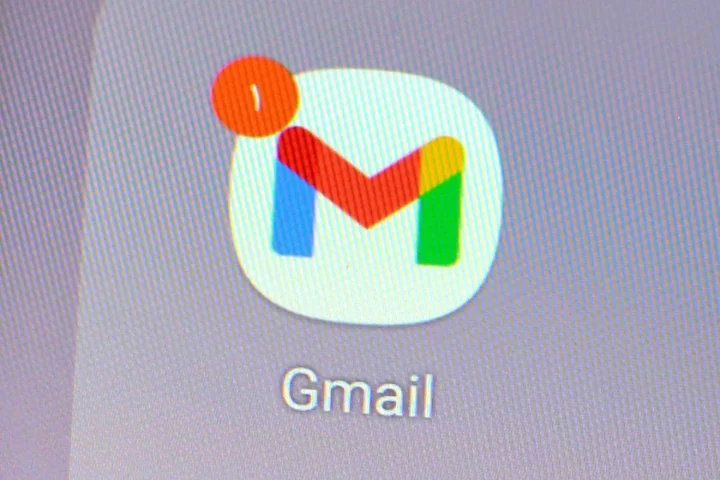
Gmail: Google issues one-week deadline to account holders
Google will begin deleting inactive Gmail, Photos and Drive accounts from next week, the technology giant has warned. The purge is part of a major update to the platform, impacting all personal Google accounts that have been left dormant for at least two years. Millions of accounts may be at risk of being permanently deleted, with some users warning that among those affected could be parents who have set up accounts to share memories and milestones with young children. Google has already begun warning users that might be impacted, saying in a blog post earlier this year that the policy would come into effect in December 2023. “We are updating our inactivity policy for Google Accounts to two years across our products,” Ruth Kricheli, Google’s vice president of product management, wrote in a blog post in May. “This update aligns our policy with industry standards around retention and account deletion and also limits the amount of time Google retains your unused personal information.” The move is aimed at protecting active Google users from security threats like phishing scams and account hijacking. Old accounts that have not been used for years are typically at risk from hackers as they may use the same passwords that have been compromised in other security breaches, which are easily available on the dark web. Any account at risk of deletion will receive “multiple notifications” before any action is taken, Google said, including to any associated recovery email addresses. The tech giant has already begun sending emails to those affected, telling users it is “to protect your private information and prevent any unauthorised access to your account even if you’re no longer using our services”. Losing access to a Gmail account could also potentially prevent people from using other online platforms and services that are associated with that email address, even if they are not related to Google. In order to keep an account active and avoid being deleted, Google users are advised to open or send an email, use Google Drive, download an app on the Google Play Store, or simply make a Google Search while logged in to the account. Any account that has posted a video to YouTube will also not be impacted, regardless of when it was last active. Google did not respond to a request for comment from The Independent, or offer any further information about how many accounts may be impacted. Read More WhatsApp warning over fee to keep old messages Why barcodes are about to check out forever Gmail users receive urgent warning before account purge Don’t believe your eyes: how tech is changing photography forever WhatsApp warning over fee to keep old messages
2023-11-23 20:59
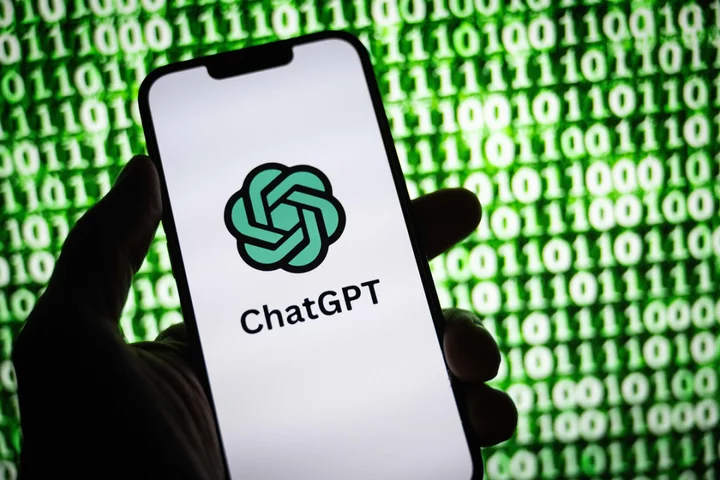
OpenAI researchers warned of powerful AI discovery before CEO fired
OpenAI researchers warned about a potentially dangerous artificial intelligence discovery ahead of CEO Sam Altman being ousted from the company, according to reports. Several staff members of the AI firm wrote a letter to the board of directors detailing the algorithm, two people familiar with the matter told Reuters. The disclosure was reportedly a key development in the build up to Mr Altman’s dismissal. Prior to his return late Tuesday, more than 700 employees had threatened to quit and join backer Microsoft in solidarity with their fired leader. The sources cited the letter as one factor among a longer list of grievances by the board leading to Altman’s firing, among which were concerns over commercialising advances before understanding the consequences. The staff who wrote the letter did not respond to requests for comment and Reuters was unable to review a copy of the letter. OpenAI declined to comment on the letter but acknowledged in an internal message to staffers a project called Q* and a letter to the board before the weekend’s events, one of the people said. An OpenAI spokesperson said that the message, sent by long-time executive Mira Murati, alerted staff to certain media stories without commenting on their accuracy. Some at OpenAI believe Q* (pronounced Q-Star) could be a breakthrough in the startup’s search for what’s known as artificial general intelligence (AGI), one of the people told Reuters. OpenAI defines AGI as autonomous systems that surpass humans in most economically valuable tasks. Given vast computing resources, the new model was able to solve certain mathematical problems, the person said on condition of anonymity because the individual was not authorised to speak on behalf of the company. Though only performing maths on the level of grade-school students, acing such tests made researchers very optimistic about Q*’s future success, the source said. Reuters could not independently verify the capabilities of Q* claimed by the researchers. Researchers consider maths to be a frontier of generative AI development. Currently, generative AI is good at writing and language translation by statistically predicting the next word, and answers to the same question can vary widely. But conquering the ability to do mathematics where there is only one right answer implies AI would have greater reasoning capabilities resembling human intelligence. This could be applied to novel scientific research, for instance, AI researchers believe. Unlike a calculator that can solve a limited number of operations, AGI can generalize, learn and comprehend. In their letter to the board, researchers flagged AI’s prowess and potential danger, the sources said without specifying the exact safety concerns noted in the letter. There has long been discussion among computer scientists about the danger posed by highly intelligent machines, for instance if they might decide that the destruction of humanity was in their interest. Researchers have also flagged work by an “AI scientist” team, the existence of which multiple sources confirmed. The group, formed by combining earlier “Code Gen” and “Math Gen” teams, was exploring how to optimise existing AI models to improve their reasoning and eventually perform scientific work, one of the people said. Altman led efforts to make ChatGPT one of the fastest growing software applications in history and drew investment – and computing resources – necessary from Microsoft to get closer to AGI. In addition to announcing a slew of new tools in a demonstration this month, Altman last week teased at a summit of world leaders in San Francisco that he believed major advances were in sight. “Four times now in the history of OpenAI, the most recent time was just in the last couple weeks, I’ve gotten to be in the room, when we sort of push the veil of ignorance back and the frontier of discovery forward, and getting to do that is the professional honor of a lifetime,” he said at the Asia-Pacific Economic Cooperation summit, a day before he was fired by OpenAI’s board. Additional reporting from agencies. Read More 10 ways AI will change the world – from curing cancer to wiping out humanity YouTube reveals bizarre AI music experiments AI-generated faces are starting to look more real than actual ones One of the world’s most hyped tech products just launched – and made a big mistake
2023-11-23 18:24
You Might Like...
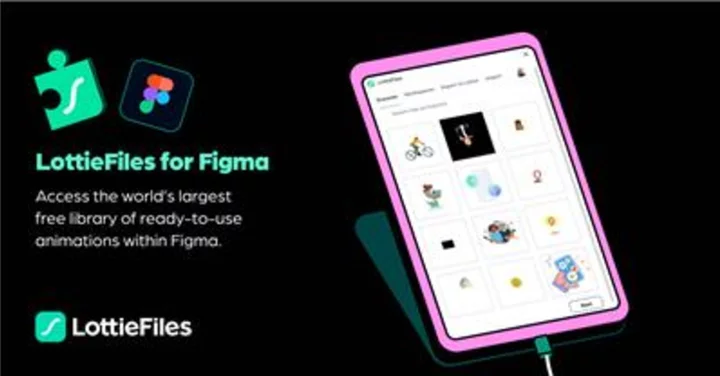
LottieFiles Announces Figma Integration, Completely Transforming Modern Motion Design
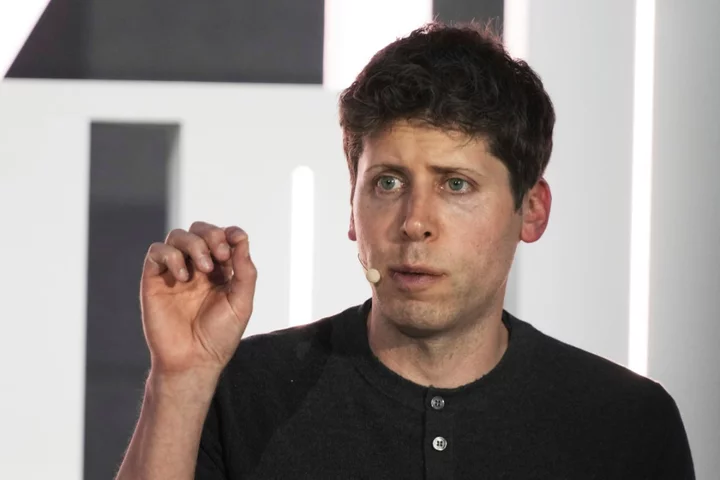
ChatGPT boss says he’s created human-level AI, then says he’s ‘just memeing’
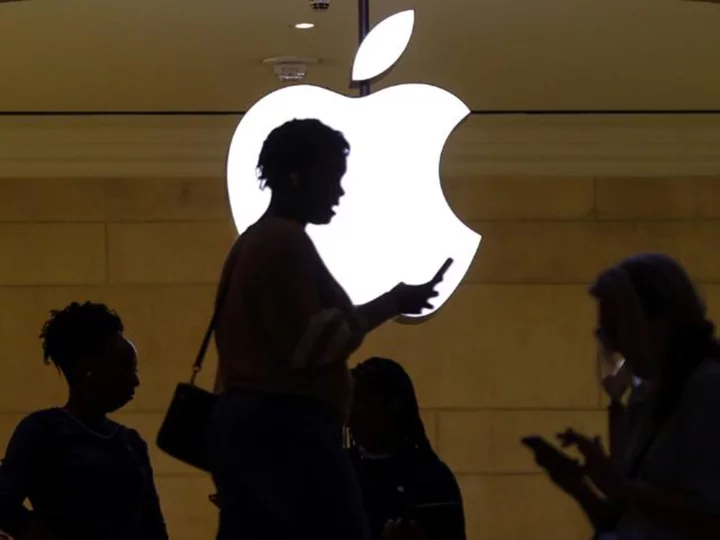
Apple expected to unveil new iPhone at "Wonderlust." special event
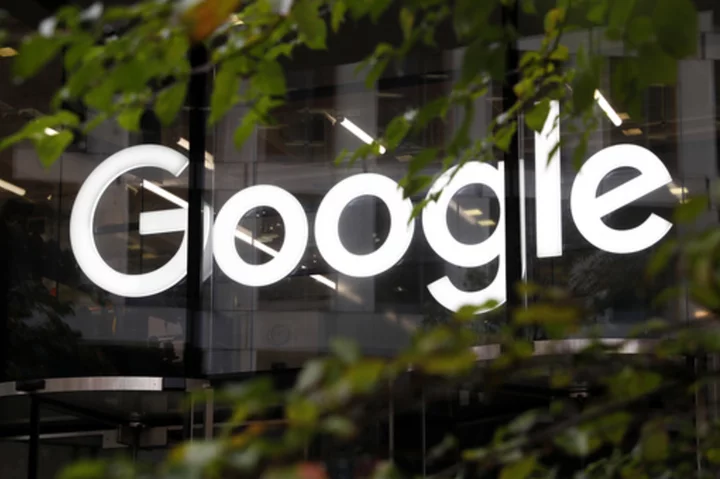
Google rolls out AI chatbot Bard to Europe and Brazil and adds more features
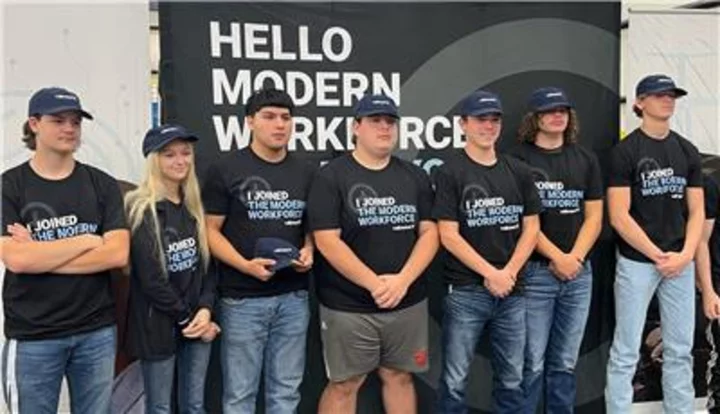
Valmont® Trade Program Welcomes 24 Apprentice and Pre-Apprentice Students Amid Growing Need for Skilled Trade Workers

Redgate to hit ten US cities on its ‘Database DevOps Rocks’ tour

Quectel Releases New 4G/5G, LPWA and GNSS Antennas to Help Customers Optimize Device Performance

Multichannel Live Selling Strategy Propels Whiskey Skies to $10M in Sales
